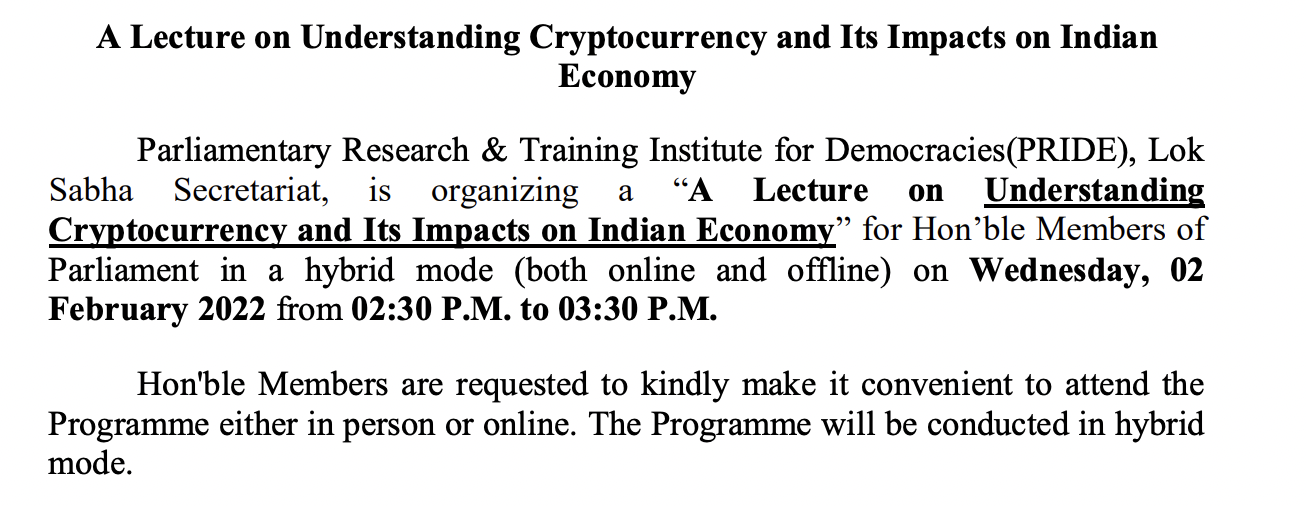The latest bulletin covering the agenda for India’s lower house of parliament includes “a lecture on understanding cryptocurrency” and its economic impact.
According to a Monday publication from the Lok Sabha, the Parliamentary Research and Training Institute for Democracies group within the government has organized a training evening for lawmakers on Feb. 2 regarding crypto and its effects on the Indian economy. In addition, the legislative business calendar for the lower house of parliament no longer includes a bill which could potentially ban crypto in the country.

The proposed legislation has popped up on the country’s parliamentary agenda multiple times since the Indian supreme court overturned a blanket ban on crypto in 2020 that had been imposed by the central bank. The Reserve Bank of India may also be moving forward soon with trials of a central bank digital currency — a digital rupee — but at the time of publication officials have not announced a test run for the CBDC.
Related: India to regulate, not ban, crypto: Cabinet documents
Many reports from local media outlets have suggested that some lawmakers in India are seeking different legislative paths to handle the growing crypto market, from proposing projects not being legally allowed to operate in the country to taxing crypto earnings differently. In October, officials from the Finance Ministry reportedly considered implementing a legal framework that could treat crypto more like a commodity than currency.
The Budget Session officially started today, with both Houses in the Indian Parliament planning to meet in separate shifts to fight the spread of COVID-19. The session is expected to run until May.







Leave A Comment